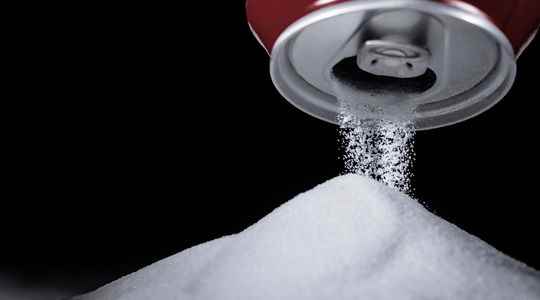Sweeteners have come under increasing scrutiny, and their health effects scrutinized by scientists. In March 2022, a large study conducted by researchers from Inserm, INRAE, Sorbonne Paris Nord University and Cnam, within the nutritional epidemiology research team (EREN) suggested that people who consumed the most sweeteners, especially aspartame and acesulfame-K, had a higher risk of developing cancer.
The highest consumers of these sweeteners, which reduce the added sugar content and the calories associated with it while maintaining the sweet taste of the products, had a 13% increased risk of cancer compared to non-consumers, according to the results of the study published in the journal PLOS Medicine.
The same team of researchers analyzed the health data of 103,388 adults participating in the French NutriNet-Santé cohort study with regard to their overall consumption of this type of food additive. The results of these statistical analyses, made public this Thursday, September 8 in the British Medical Journal, suggest an association between general consumption of sweeteners and, this time, an increased risk of cardiovascular disease, the leading cause of death worldwide. Study coordinator Mathilde Touvier, research director at Inserm and head of the nutritional epidemiology research team, details this first study that quantifies overall exposure to sweeteners.
L’Express: The results of your study suggest an association between the general consumption of sweeteners and an increased risk of cardiovascular disease. How do you explain it?
Mathilde Touvier: The links between excess sugar, in particular the excessive consumption of sugary drinks, and many pathologies such as dental caries, diabetes and cardiovascular diseases are very proven. This has led manufacturers to develop alternatives to sugar now widely used as sweeteners. They are mainly found in watered down drinks such as light sodas and non-carbonated drinks, in powders that can be added, for example, to coffee and tea or even to dairy products, such as light yoghurts.
The epidemiological literature presents studies looking at the links between sweetened beverages and cardiovascular disease. Studies show disturbances of certain early parameters of cardiometabolic health such as weight gain, cholesterol disturbances or blood sugar regulation. These effects could potentially explain what could happen to the cardiovascular system in the longer term.
Other studies focus on the disturbance of the intestinal microbiota caused by sweeteners. This disruption could also later lead the body to develop cardiovascular diseases. These hypotheses remain to be verified, but we now have a body of arguments which is beginning to grow on this question.
You found that total sweetener consumption was associated with an increased risk of cardiovascular disease, specifically cerebrovascular disease like stroke and transient ischemic attack. How high is the increased risk of these diseases?
We do not communicate too much on this question because it can vary from one cohort of participants to another. However, for a follow-up equivalent of 100,000 people per year, there would be a development of 346 cases of cardiovascular disease among “heavy consumers” of sweeteners and 314 cases among non-consumers. The difference is therefore not gigantic but it remains statistically significant and robust.
It will not be easy to make these sweeteners disappear overnight. However, what alternatives do you recommend?
Given the information that we have and that are accumulating, sweeteners may not be a safe alternative to sugar as one might have possibly imagined at the start.
We already know that we should not consume too many sugars and especially sugary drinks. (Editor’s note: given the deleterious effects of excessive sugar consumption, the WHO recommends limiting consumption to less than 10% of daily energy intake). The idea is to try to gradually reduce the sweet taste of our diet, to change our long-term eating habits by reducing sugar and sweeteners.
We must also send messages to young people, because there are still many children who consume a bottle of soda or diet soda during their meal, although these are not habits to adopt. In summary, the subject goes beyond prohibiting or reducing the authorized doses of sugar and sweeteners: it is about changing our way of eating.
Further research in other large-scale cohorts will be needed to replicate and confirm your results…
The results of our work are taken into account in expert appraisals, particularly at the level of the World Health Organization (WHO), which should publish its final recommendations by the end of the year. There will soon be positions taken by health agencies on the subject.
For our part, we have studied the increased risks of cancer and we are now working on the question of the risks of diabetes and weight variation, the next two topics on which we will publish studies, in 2023.
NB: Within the French NutriNet-Santé cohort study, researchers are always looking for volunteers to continue to participate in the study: anyone over the age of 15 and with Internet access can register and participate in public health nutrition research.
